Joseph Losey’s Mr. Klein (1976): Criterion Blu-ray review
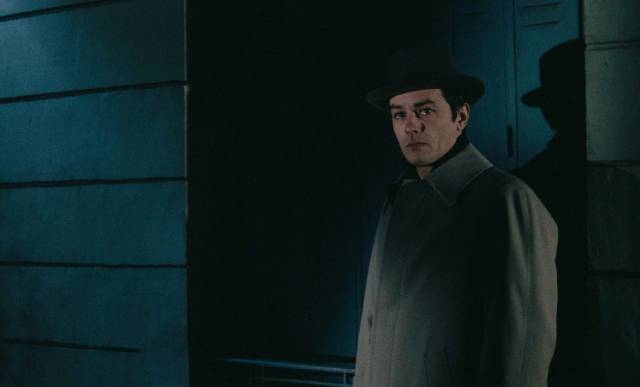
Joseph Losey’s career was marked by displacement, which in turn seemed to produce a restless search for an identity. As someone born into relative privilege who witnessed the collapse of American society in the Depression (which began when he was twenty), he leaned to the left and joined the communist party in the ’30s. His radical politics coloured his filmmaking from the start with stories about outsiders and the oppressed – his first feature, the allegorical Boy with Green Hair (1948), was followed by several powerful movies about power, corruption and injustice which used the tropes of noir to critique post-war society.
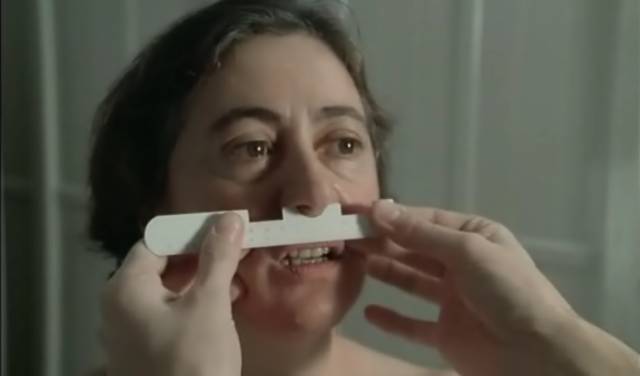
Inevitably, his personal history and the content of his work made him a target of the House Committee on Un-American Activities and he abandoned his burgeoning Hollywood career for exile in Britain. For several years, he did work for hire under a number of pseudonyms (a necessity if these movies were to be marketable in the States). Even after he began using his own name again, there was an unsettled quality to his work, although he was again drawn to crime as a vehicle for a moral interrogation of society – Time Without Pity (1957), Blind Date (1959), and The Criminal (1960). The latter began his association with star Stanley Baker which paved the way for one of his strongest periods, during which, with the addition of equally important collaborators Dirk Bogarde and Harold Pinter, he would dissect the British class system in half-a-dozen films over seven years, notably Eva (1962), The Servant (1963) and Accident (1967), with a couple of anomalous diversions (Hammer’s The Damned [1962], Modesty Blaise [1966]), before he entered another bewildering exploratory phase with his baroque Liz Taylor melodramas Boom and Secret Ceremony (both 1968), quickly followed by the abstract political allegory Figures in a Landscape (1970) and his biggest commercial success, the period romance The Go-Between (1971).
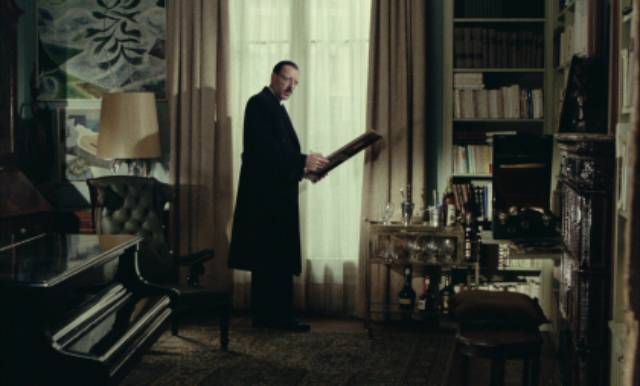
For Losey, the ’70s were another decade of wandering and uncertain identity. He made filmed plays based on Ibsen and Brecht and ended the decade with a lush version of Mozart’s Don Giovanni (1979). In 1972, he made his first overtly political film, The Assassination of Trotsky, which introduced him to both French star Alain Delon and Italian screenwriter Franco Solinas (who contributed to the script without credit). Which brings us to the subject at hand: Mr. Klein (1976).
Delon, looking to branch out from his familiar persona in a series of cool crime movies going back to Rene Clement’s Plein soleil (Purple Noon, 1960) and including numerous roles for Jacques Deray, Henri Verneuil and Jean-Pierre Melville, got hold of a script developed by Solinas in collaboration with Costa-Gavras. Delon, who had served as producer on many of his previous movies, proposed Losey as director with himself in the lead role. It was in some ways an odd choice, particularly since Losey didn’t speak French, but proved effective in the event. Losey’s ability to balance an attention to precise detail with the abstraction of allegory suited Solinas’ script which, rather than examining historical events in their exact material facts, sought to discover the psychological and moral impulses underlying those facts.
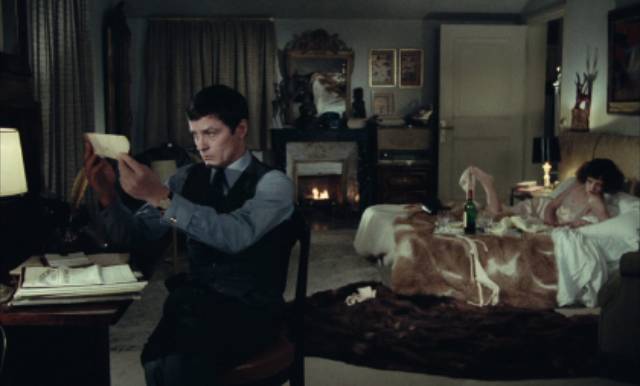
Perhaps more than any other of his films, Mr. Klein deals directly with Losey’s own displacement and uncertainty about identity; Klein’s experience of suspicion, persecution, of an identity imposed on him by others, echoes Losey’s experience with HUAC’s anti-communist witch hunt. Although set in 1942 Paris, and steeped in the fear inherent in the Occupation, the film strives to generalize the protagonist’s experience into a larger existential context. The social othering which progressively erases Klein’s identity is both a general abstract principle of human social behaviour and very specific to the story’s particular time and place. The strain of anti-Semitism running through French history was so deeply embedded that the French, unlike many countries under German occupation, willingly took part in the persecution of the Jews; the narrative leads inexorably to a re-enactment of the infamous Vel’ d’Hive’ roundup in which the French police arrested more than thirteen-thousand foreign Jews in July 1942 and deported them to the German death camps. Throughout the film, with the brief exception of a scene in a cabaret, we don’t see any Germans – the system of oppression is operated by the French themselves.
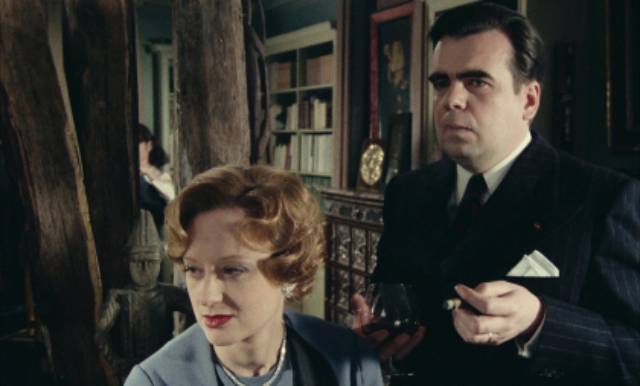
The tone is set immediately in the particularly brutal opening scene in which a doctor devoid of empathy treats a naked middle-aged woman to a humiliating examination, dictating his observations to an assistant – he examines the woman’s teeth and gums, measures her nostrils, comments on the quality of her hair and earlobes, orders her to walk across the room to judge her gait – the details all serving as the basis of a decision about whether or not she is Semitic. To add further insult, the woman has to pay for this examination. (Although there’s an almost casual lack of emphasis, this woman is glimpsed again towards the end of the film and we discover what the doctor’s final judgment must have been.)
From this stark opening, we find ourselves in the opulent apartment of Robert Klein (Delon), a wealthy art dealer. At first we only hear his voice in another room, negotiating a deal, as we see his mistress Jeanine (Juliet Berto) wandering from the bedroom to the bathroom and applying makeup. When we finally see Klein in his silk dressing gown, he is talking to a man (Jean Bouise) who urgently needs to sell a painting in order, hopefully, to get out of France. Klein offers far less than the painting is worth and the man has no choice but to agree. Klein’s casual lack of empathy makes him problematic as a protagonist; he’s making money and sustaining an obviously profitable business by taking advantage of desperate Jews. His treatment of Jeanine as just another piece of property compounds the problem.
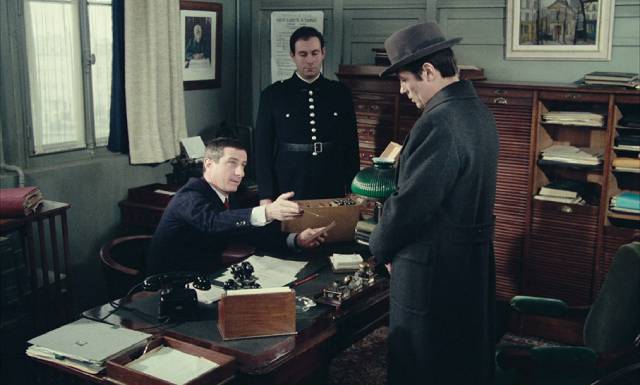
But everything is about to change. As the man is leaving, Klein finds a copy of a Jewish newspaper by his door, with his own name on it. He goes to the newspaper office to point out their error – he didn’t subscribe and, obviously, he isn’t a Jew. This question of identity runs through every subsequent encounter, informed by that unpleasant opening scene: there is no clear distinction between Jews and gentiles, only arbitrary categories imposed by flawed authorities. When Klein goes to complain to the police that someone seems to be trying to make it appear that he’s a Jew, he simply calls the attention of the police to his existence. Perhaps he’s making all this up to distract them from the fact that he actually is a Jew?
Klein embarks on an investigation to find the other Robert Klein, a double whom he never manages to glimpse, but whose existence increasingly impinges on his own as people who know the other mention how much Klein looks like him. He finds the other’s apparent residence in a crumbling, rat-infested apartment – strangely, on a shelf, there’s a copy of Moby Dick, a book Klein’s mistress had previously read from in his bedroom. (The allegorical significance of this is perhaps somewhat overdetermined: like Ahab, Klein becomes obsessed with the search for a monster which has threatened his existence, leading inevitably to the destruction he desires to overcome.)
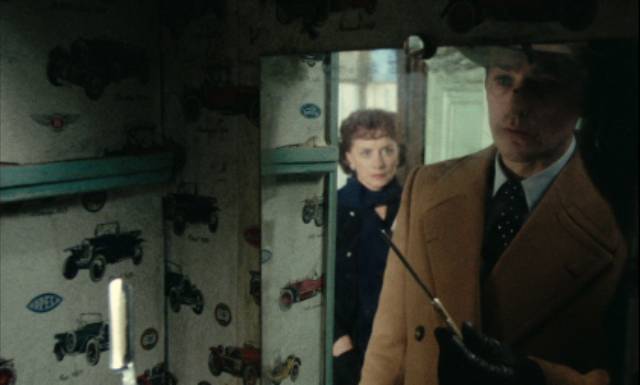
Klein’s pursuit leads to puzzling places – the other who lives in squalor is also the lover of a wealthy woman (Jeanne Moreau) who lives in a huge country estate; he is also apparently a member of the Resistance – but he always remains elusive while Klein himself seems somehow to be slipping ever deeper into uncertainty about his own identity. Losey uses numerous mirrors to emphasize the doubling of Klein as those around him begin to doubt that he’s actually the man they thought they knew. His lawyer, Pierre (Michel Lonsdale), initially seeming helpful, ends up treating him the way Klein had treated the Jews he took advantage of. As Klein becomes more desperate, seeking a way to escape from Occupied Paris, Pierre manipulates his client and ostensible friend’s business affairs to his own financial advantage. Klein’s search for the other has inexorably transformed him into the image of those he had so callously exploited.
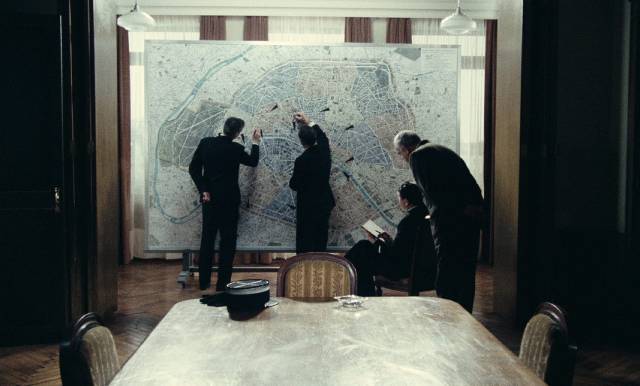
Losey’s coolly detached style takes us off-guard. While Klein seemed quite despicable at the beginning, we can’t help but feel that he has been unfairly treated. He is not a Jew and yet the system is unable to make that distinction; and we feel some sympathy for his desperation – he shouldn’t be getting swept up in the disaster which is fast approaching. But of course, no one should be getting swept up. Somehow as viewers we have been placed in a position of making our own distinction between gentile and Jew, even though we know how stupid and arbitrary that distinction is. When the French police begin to round up thousands of Jews for deportation to the German death camps, we know that Klein doesn’t belong among them – but on the bus taking him to the transfer point, he finds himself standing beside the middle-aged woman from the opening scene, fearful and confused and disbelieving. The doctor had obviously designated her as Semitic, just as the police have decided that Klein must be a Jew … an arbitrary political choice which separates those who have been so labelled from the rest of society, justifying their removal and destruction.
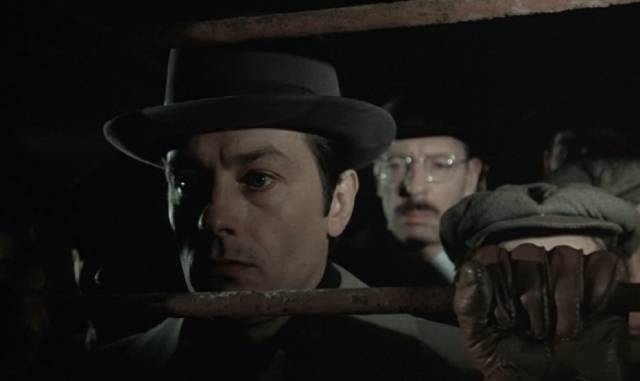
The final chilling sequence, as the French authorities willingly do the Germans’ dirty work, leads to a problematic conclusion. Pierre arrives at the stadium where those arrested are being held for deportation with the proof necessary to save Klein (papers proving that his family lineage is safely Christian), but Klein can’t let go of his need to find and confront the double and, believing that he has glimpsed him, he pushes forward into the crowd being loaded onto the cattle cars for transport to Auschwitz. Unwittingly, his search has led him to assume the identity of the double who had worked to make everyone else believe that Klein was that other. While this carries the film’s theme to its conclusion, it remains psychologically problematic, the tension between historical reality and allegory ultimately unresolved.
*
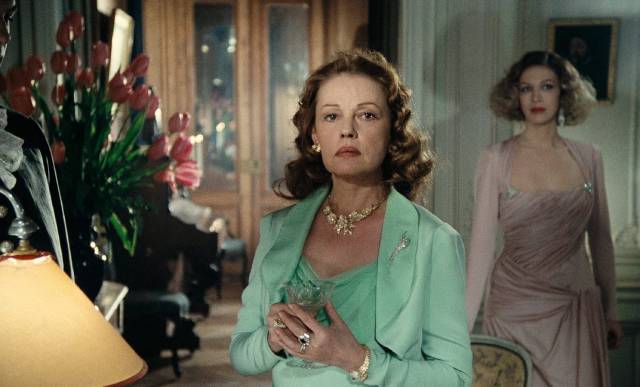
Like most of Losey’s work, Mr. Klein is impeccably crafted – Gerry Fisher’s cinematography is in constant motion, with muted colours evoking an idea of the past on contemporary locations (Paris under Occupation seems strangely depopulated, adding to the dream-like quality of Klein’s identity crisis). There is none of the opulent nostalgia evident in films like Bernardo Bertolucci’s The Conformist (1970) or Luchino Visconti’s The Damned (1969); Losey doesn’t aestheticize the decadence of fascism, neither does he allow any characters to take much pleasure in that decadence.
While the French authorities fully take part in German oppression, they seem as oblivious of the moral implications as Klein himself in his exploitation of desperate Jews. The lack of affect in the police as they close in on Klein and eventually round up thousands of Jews is devoid of the psychosexual undercurrents often present in movies set during the Nazi period; these are all colourless bureaucrats simply doing the job assigned to them. The emotional chill running through the film even affects Klein himself; the apparent conspiracy against him is a puzzle to be solved, the possibility of resolution eventually superseding his instinct for survival. Klein needs to find the double in order to confirm his own identity, but in the end the identity he finds is actually that of the other. Even before he reaches the death camp, Klein has ceased to exist.
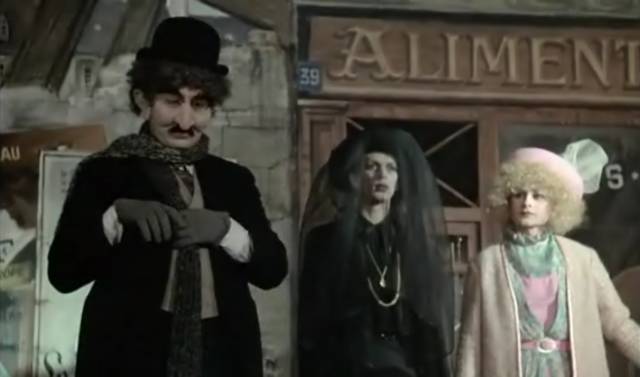
Mr. Klein has a visceral quality which rests on the physical details of its setting – those interiors which range from luxury to abject squalor, and the wintry exteriors with grey light and a constant feeling of damp cold – and yet narratively and thematically it remains quite abstract. Losey is exploring the theme of people’s inability to feel empathy for those unlike themselves. Under the Occupation, as fear and horror encroach on a particular part of the population, the wealthy and privileged carry on as they always have done, barely registering the gathering darkness (at a cabaret where the show is blatantly anti-Semitic, Klein applauds until Jeannine places her hand on his arm to make him aware of what it is they’ve been watching). But this casual lack of interest and attention is broken for Klein when mysterious signs begin to call his identity into question and he finds himself crossing the invisible barrier which he believed separated him from those he was taking advantage of. His wealth and position prove no guarantor of security and he finds himself subject to the indifference he has shown to his frightened victims. All of this we observe through Losey’s coolly detached style, never touched on an emotional level by Delon’s performance.
*
The disk
Even with the muted colour scheme, Criterion’s 4K restoration from the original negative looks impressive, with a great deal of fine detail. The mono soundtrack is subtle, with a sparing use of music and an emphasis on the dialogue.
The supplements
The Blu-ray includes three-and-a-half hours of extras, providing an account of the production as well as the history which informs Solinas’s script. Under the title “Making Mr. Klein”, there’s a television clip from 1976 in which Losey and Delon discuss the film (12:59) plus an interview with editor Henri Lanoë (26:13) in which he talks about the events dramatized in the film and his experience working with Losey.
Critic Michel Ciment, one of Losey’s most enthusiastic supporters, discusses the director’s career and the making of the film in a lengthy new interview (48:45), and also sits in on an audio interview with Losey from 1976 (33:39), in which the filmmaker talks about his reasons for making the films and the challenges he faced shooting a feature in a language he didn’t speak.
Historical context is provided by a television program from 1986, Story of a Day: The Vel’ d’Hiv’ Roundup (1:23:46), in which a presenter confronts the issues of collaboration and anti-Semitism during the Occupation, with archival material and interviews.
There’s also a trailer (1:53) and a booklet essay by Ginette Vincendeau.
Comments